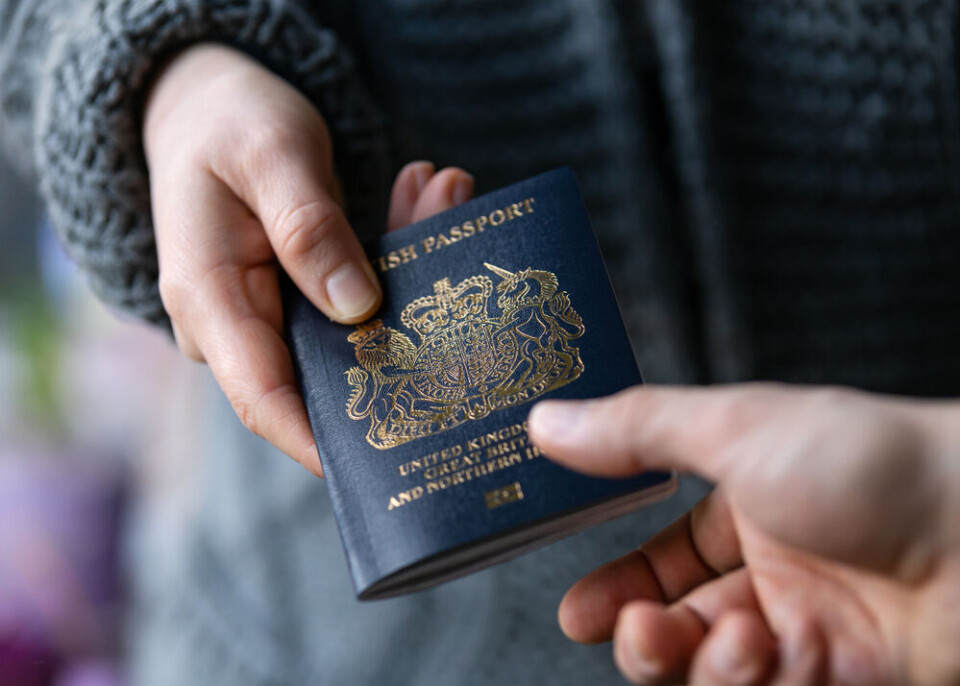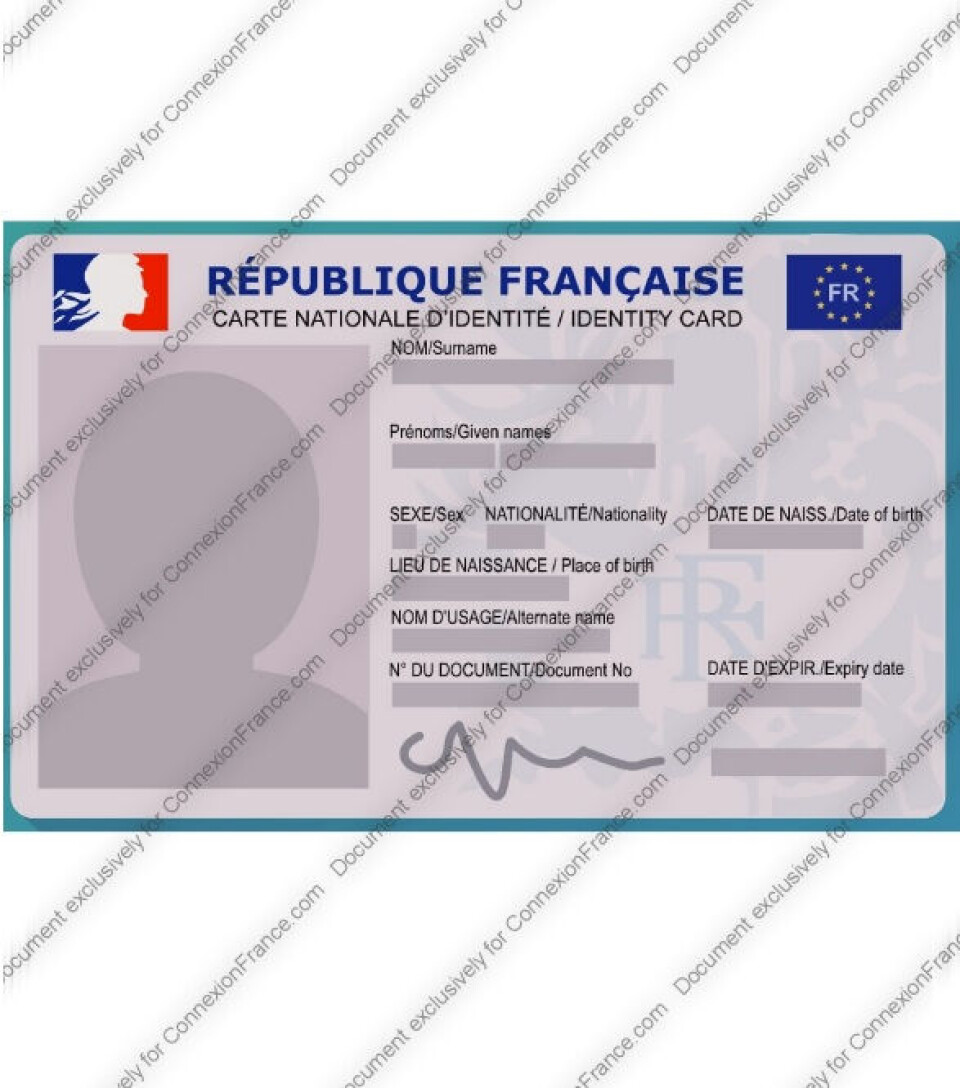-
Process for drug testing drivers strengthened by French court ruling
The supreme court made the ruling after overturning an appeal against drug-driving
-
Theft of trees and wood on rise in France: dedicated helpline set up
Robbers strip forests for prized timber, leaving areas too devastated for trees to regrow
-
‘No evidence third party involved’ in deaths of British couple in south-west France
Investigators update The Connexion on Dawn Kerr and Andrew Searle case
This online tool helps you guard against identity theft in France
It allows you to add a watermark to identity documents to reduce the risk of them being used by fraudsters

The government has put a tool online that allows you to add a watermark to important documents to help avoid identity theft.
Available at this link, it lets you upload a document and add a watermark of your choice.
You then download the file as a PDF with the watermark added to the document.
It is intended for sensitive documents, such as your identity card, driving licence, proof of address, tax records or passport.
For example, you may need to send copies of these for tasks such as renting a vehicle or buying or renting a home. But if they fall into the wrong hands, you could have your identity stolen.
The tool enables you to write a specific watermark on your document, to stop it from being usable for another reason (such as opening a fraudulent bank account).
For example, your watermark could say:
-
When renting a car: Document exclusivement pour Europcar, Août 2023.
-
When paying a property deposit: Transaction du Aout 23, 2023, avec Mr Christophe.
-
When proving your identity: Preuve d’identité exclusivement pour Website.fr, Août 15, 2023.
How can I use the tool?
-
On this page, upload a PDF document or a PNG or JPG image file by hitting the small grey button.
-
Enter the watermark you would like, ensuring it is specific to your situation (for example ‘Document exclusivement pour Europcar, Aout 2023’). You can write anything you like (including in English).
-
Then, hit the blue button that says Ajouter le filigrane (Add the watermark).
-
The watermark will then be added.
-
Download and save the new file. The watermark means that anyone who may get hold of the file later will not be able to use it to ‘prove’ their identity elsewhere.

Image: Filigrane.beta.gouv.fr / Drazbedel - Shutterstock
The original files are not stored in the tool and are deleted once the watermarked version has been generated.
The watermarked version is also deleted once it has been downloaded (or after 10 days if you do not download the document at all).
You can then send the watermarked version of your document instead of the original.
Identity theft: A major problem in France
In France, more than 200,000 people every year become victims of online identity theft. This could include unauthorised access to your email account, bank fraud, or the theft of sensitive, personal data.
Often, identity theft is carried out by a scammer who appears genuine at first.
For example, someone could advertise an apartment to rent or a second-hand car to buy. The price may be low to attract more offers. Then, when you send your ID and other documents as part of the transaction, they steal your information.
They may ‘prove’ their trustworthiness by sending you their ID and other documents, but this is typically part of the scam, and the ID is very likely to be of someone else (from another victim).
Identity thieves can use other people’s identities to open bank accounts, sign up for insurance, or falsely claim benefits. The victim may only find out if they later encounter financial, benefit, or banking problems as a result of the scammer’s actions.
How can I reduce the risk of identity theft?
The victims’ association France-Victimes.fr has the following advice:
-
Never provide a copy of sensitive documents to someone you do not know personally or to a company that is not 100% reliable.
-
Stay alert to ‘shoulder surfing’ (people looking over your shoulder) at cash machines, checkouts, cafés, etc.
-
Regularly check that you have your identity and bank papers with you.
-
Be sure to destroy every document with identifying information on it before throwing it away.
-
Be vigilant about the calls you receive, for example, someone may pose as being from a polling company but might only be interested in getting your personal information.
How can I reduce the risk of online theft?
-
Protect your computer. Install a reputable antivirus program.
-
Beware of phishing. This is where you receive a seemingly standard or genuine e-mail asking you to verify your personal data such as passwords, credit card numbers or social security details. Contact the organisation concerned directly and immediately before replying to check if the email is genuine.
-
Check email addresses. Scammers often have ‘genuine-looking’ email addresses that, on closer inspection, are using a public email service rather than the company’s own. For example, service-client-orange@yahoo.com (instead of ‘@orange.fr) or recouvrement-banque-postale@gmail.com (instead of @labanquepostale.fr). If in doubt, go to the official website and contact customer services.
-
Do not give out ID details accidentally. Delete all your data before changing computers or phones.
-
Be vigilant when buying online. Check the security of the website, and avoid saving any data on websites, as this can expose you to risk if the site is hacked.
-
Disconnect from all your accounts when using a public computer or a public Wi-Fi network (or use a separate VPN, a virtual private network), which encrypts your information.
Read more: What to do if you fall victim to number plate fraud in France
What if I think I have fallen victim to identity theft?
-
Cancel your bank cards and any direct debits that you do not recognise. Contact your bank and let them know. You may need to file a formal complaint to allow investigations to begin.
-
Go to your nearest police station or gendarmerie to lodge a complaint for identity theft. Keep a copy of the complaint as you may need it when dealing with your bank or government departments.
-
Contact the Banque de France to check that you are not registered with them. Ensure you are not on the register of the Fichier central des chèques (FCC) or the Fichier des incidents de remboursement des crédits aux particuliers (FICP).
Read more: France launches new online platform for reporting internet scams
Related articles
Warning over scammers pretending to be from French finance ministry
Victim of identity theft in France receives over €10,000 in fines
‘Ghost’ garages, false plates, identity theft: car crime in France
























